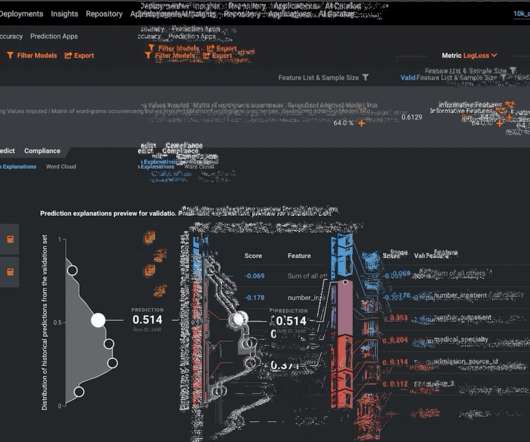What Is Model Risk Management and How is it Supported by Enterprise MLOps?
Domino Data Lab
AUGUST 6, 2021
Model Risk Management is about reducing bad consequences of decisions caused by trusting incorrect or misused model outputs. Systematically enabling model development and production deployment at scale entails use of an Enterprise MLOps platform, which addresses the full lifecycle including Model Risk Management.














Let's personalize your content